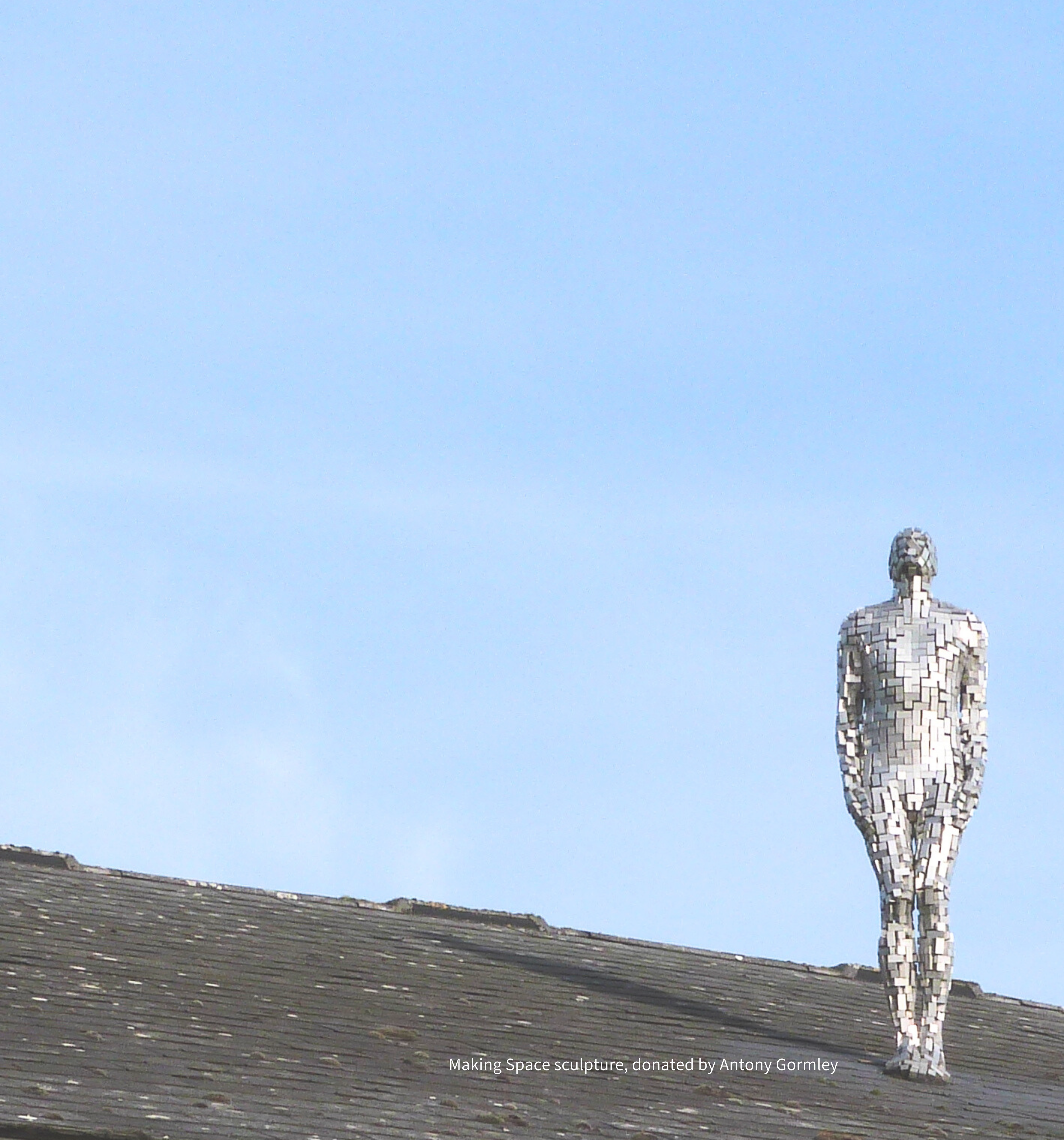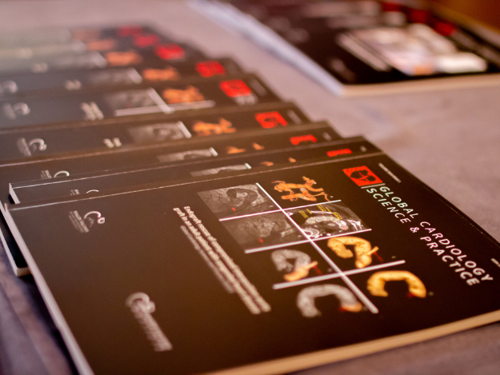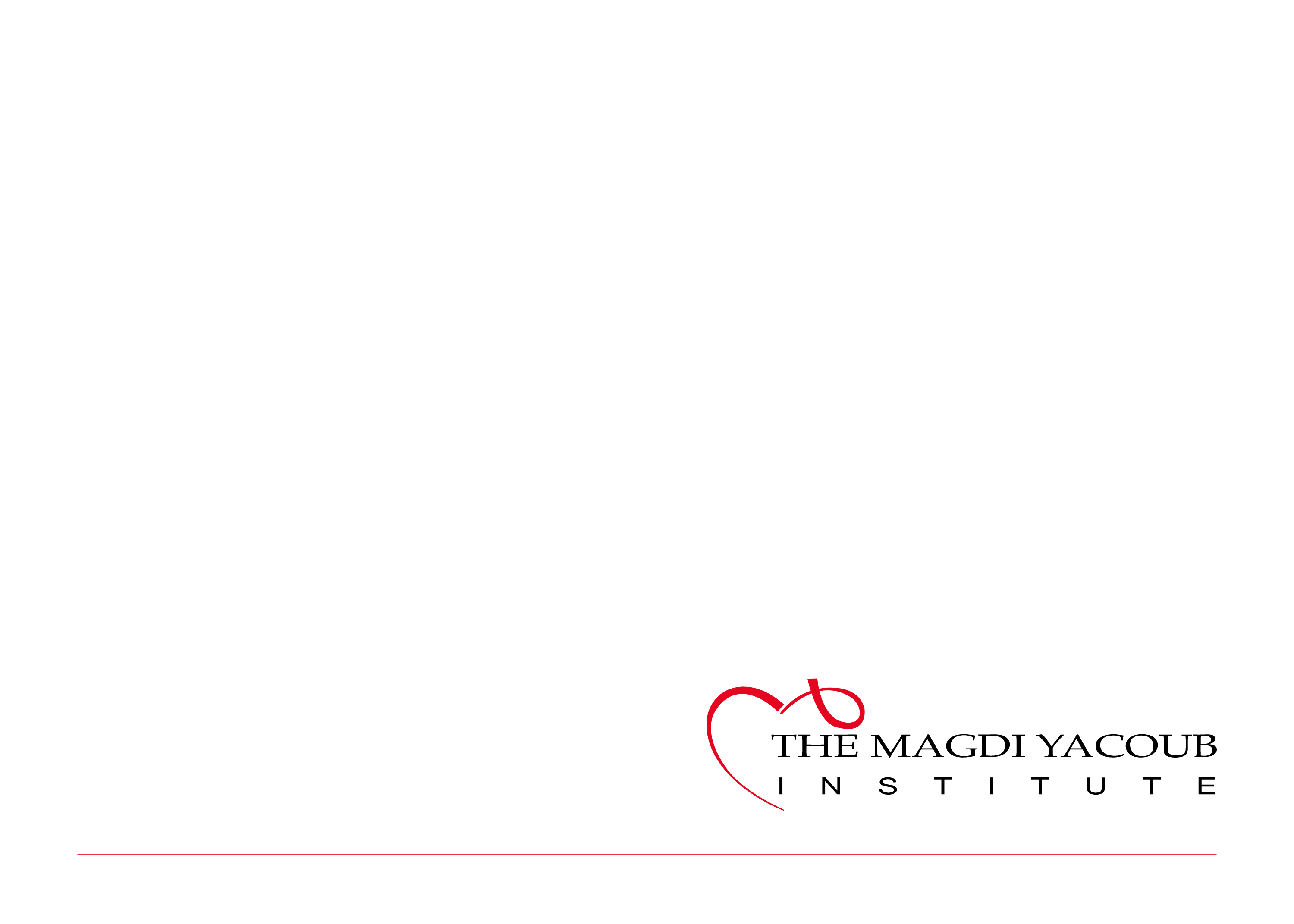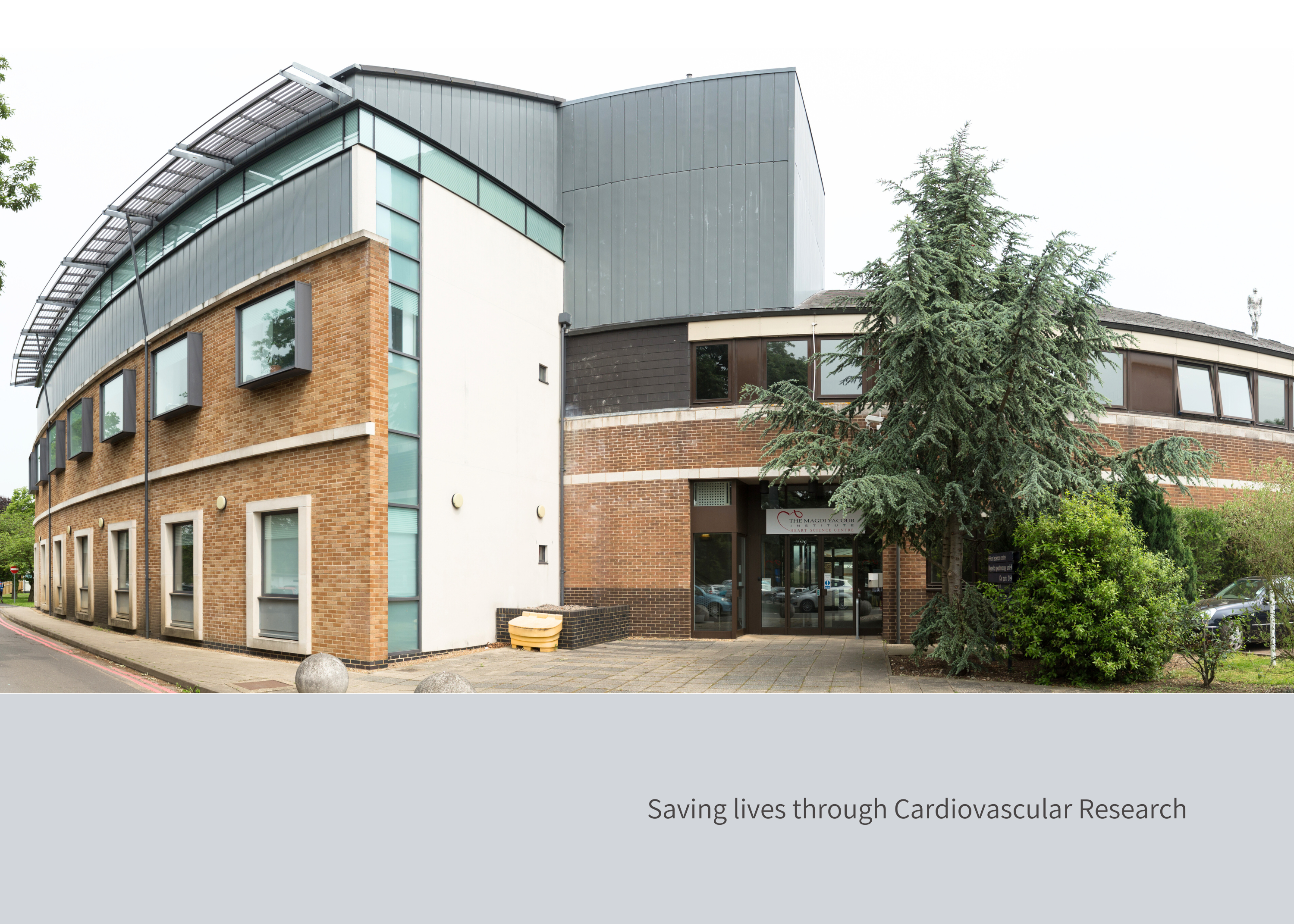
WELCOME TO THE MAGDI YACOUB INSTITUTE


Professor Sir Magdi Yacoub OM, FRS
Founder and Director of Research Emeritus Professor, Imperial College National Heart & Lung Institute

Cardiovascular Disease is indiscriminate, it does not spare any race, age, social class or gender. More people die annually from cardiovascular diseases than from any other cause.
The aim of the Institute is to improve lives of the many people affected by heart disease and reduce the number of people suffering and dying worldwide.
Although we have made great inroads since the research centre was established in 1980, there is a lot more work to be done in understanding the mechanisms of cardiovascular disease and developing new treatments.
Throughout my career I have seen the negative impact that heart disease has
on individuals and their families. It is our mission to do everything we can
to use science and innovation to offer hope to humanity.
This is where we reach out for your support as we know heart research
costs millions but doing no research costs far more in terms of loss of
life and human suffering.
Thank you for helping us in achieving our shared vision.
With my very best wishes

The Institute started as the Harefield Transplant Trust in 1980 to fund and support the innovative transplant programme at Harefield Hospital. The Transplant programme became the largest in the world and the Harefield Transplant Trust evolved into a base to support research into the causes, mechanisms and treatment of heart disease, as well as global medicine.
The Harefield Research Foundation (now The Magdi Yacoub Institute) was formed in 2000. The Magdi Yacoub Institute is situated in modern purpose-built laboratories at Harefield hospital with state of the art equipment to facilitate the full range of research. Creating an environment that bridges the gap between basic research and clinical practice to develop and deliver pioneering treatment and devices to combat cardiovascular disease. Since its inception, first as the Harefield Transplant Trust and now as The Magdi Yacoub Institute, the team led by Professor Yacoub have continued to make original contributions in basic science and translational research.
The Institute attracts scientists and clinicians from across the globe and supports the development of young scientists by providing access to facilities and training for PhD students, undergraduates and work experience students alongside senior scientists and early career investigators.
We work closely with our research partners at the Aswan Heart Centre. The UK and Egyptian teams work jointly on a number of collaborative projects.
The Magdi Yacoub Institute also has close ties with The National Heart & Lung Institute at Imperial College London and The Royal Brompton and Harefield Trust.


RESEARCH AT THE INSTITUTE
Heart Valve Biology and Tissue Engineering
For several decades at Harefield Hospital and Harefield Heart Science Centre, the clinical and research activities have concentrated on the development and implementation of innovative techniques for the treatment of heart valve disease. In the laboratory this necessitates a thorough understanding of the complex functions of a living heart valve. Ongoing research in this area has resulted in efforts to develop a tissue engineered living heart valve.
The prototype of such a valve is currently undergoing pre-clinical testing.
Future availability of this valve should enhance both the survival and quality of life of children and adults requiring heart valve replacements.
This is envisaged to have a major impact on the treatment of heart valve disease in developed and developing countries.


Cardiac Biophysics and Systems Biology
The Cardiac Biophysics group focuses on the relationship between the mechanical environment of the heart and electrical activity. Their studies rely on the ability to cross traditional boundaries between different disciplines (engineering, biophysics, biology, computing). Investigations range from studies at the single cell level to whole organs. Building on a solid track-record in the development and application of novel techniques, they combine experimental and computational methods to investigate the cardiac structure-function relationship to address clinically relevant research targets.

Genomics and Transcriptomics of Cardiomyopathies
Inherited heart muscle disease including the cardiomyopathies are common worldwide but remain neglected particularly in low and middle-income countries.
Researchers at the Magdi Yacoub Institute collaborate with clinicians in different hospitals and research institutes around the world in studying the genes responsible and their mode of action. From this understanding, strategies are developed to prevent and treat such conditions in a patient-specific manner.
Defining the genetic basis of cardiomyopathies will improve diagnostic interpretation, risk stratification, and facilitate more effective treatment strategies.

RESEARCH AT THE INSTITUTE
Pulmonary Hypertension
Raised pressure in the Pulmonary Artery (Pulmonary Hypertension) is now recognised to impose a major global burden of disease worldwide.
Understanding the basic mechanisms involved in the causes of different forms of the disease is of crucial importance in evolving new strategies for prevention and treatment. The Vascular Biology Group at the Heart Science Institute have been deeply involved in defining the role of the different cells and mediators found in the lung and elsewhere in the body to understand the role they play in the causation of these diseases. The availability of human tissue from the Harefield Heart Biobank and the active transplant programme of hearts and lungs has provided a vital source for implementing these studies.
Professor Sir Magdi Yacoub and his team have continued to develop complex techniques over a period of thirty years, collaborating with national and international research groups, working to understand Pulmonary Hypertension.


Myocardial Regeneration and Stem Cell Biology
Following injury due to many causes, heart muscle cells fail to repair themselves. (As shortly after birth these cells lose their capacity to self replicate).
This is one of the major causes of heart failure which currently constitutes a major epidemic worldwide. Multiple strategies are being used at the Magdi Yacoub Institute to address this problem. These include the use of several types of stem cells derived from human fatty tissue, (adipose derived progenitor cells) or cells from the skin and other tissues, (induced pluripotent cells).
Also being investigated is the heart’s own ability to repair itself and recover function through the use of combination therapy, consisting of left ventricular assist device and pharmacological therapy.


THE BOY WITH HALF A HEART - a tale of what can be achieved through research

Not long after Professor Yacoub took up his consultant post at Harefield in 1969, a 4-year old boy was referred to him for surgery. In the days long before modern imaging techniques such as echocardiography, CT scans, and MRI were available, Professor Yacoub decided to operate to see how he could help the boy. So in February 1970, the boy went to the operating room. What Professor Yacoub found was that the boy essentially had only half of a heart (he had no functioning right ventricle). Professor Yacoub knew he couldn’t fix the boy’s heart, so he did the best he could to help the flow of blood through the boy’s heart and stitched him up. After the operation, he went to talk to the boy’s parents. He told them there was some good news and some bad news.
The bad news was that he was unable to fix their son’s heart, but the good news was that they were doing research into how to do it.
Meanwhile, a French surgeon, Francis Fontan, from Bordeaux started experimenting on surgical procedures in dogs to treat patients with a single ventricle. Although the experiment in dogs didn’t work, when he tried the technique on a very ill child he was successful. He published a paper reporting the technique used in his first three cases in 1971.
By 1974 Professor Yacoub was ready to try his own modification of Fontan’s operation and chose the same boy, who was now 9-years old as his first patient.

Without the operation, his parents were told he would most likely die by the time he became a teenager. Professor Yacoub’s operation involved using human heart valves to turn the upper chamber on the right side of the heart into a chamber of the heart to pump blood to the lungs. The boy survived the 7-hour operation and went home to resume his life. The experience with the new “modified Fontan” operation was published in 1976.
Inspired by his experience the young boy became interested in the science, medicine and the heart. At university, he studied pharmacology and then went to work for a pharmaceutical company in their drug discovery program. He loved the work so much that he decided he wanted to do a PhD. and have a career in scientific research. When he was aged 22, while attending an outpatient check-up at Harefield he bumped into Professor Yacoub, who asked him what he was doing now. When he explained his desire to do a PhD, Professor Yacoub offered him the chance to come to Harefield and set up a new laboratory to study human blood vessels and to do a PhD.
He never looked back and in the following years they worked closely together establishing at first the new laboratory and then a whole group of scientists working together on a common theme. Over the course of the next 30 years, they published over 160 papers together, obtained numerous grants, and supervised over 20 PhD. and MD students.
The young boy who had to wait for research to find a way to treat his own life-limiting condition has spent the vast majority of his working life together with Professor Yacoub, sharing his vision of finding new treatments for clinical problems through basic science research.

GLOBAL CARDIOLOGY SCIENCE & PRACTICE

In order to promote scientific research and exchange of knowledge, the Institute publishes a journal, Global Cardiology Science & Practice.
The Journal aims to connect cardiologists around the world with advances in basic science and how this translates into clinical practice. It has a particular focus on diseases, research, and practice in countries which are not well covered by traditional journals.
The journal is indexed in PubMed Central and PubMed - and all publishing costs are covered by the Magdi Yacoub Institute, meaning there are no publishing charges for the authors, and the journal is free to read for all. A measure of the journal's success is that its 443 articles have been cited 4,326 times in other journals, and have been cited in 67 patents. The most cited article has been cited 675 times (all data from lens.org, March 2024). Mirroring its global scope, the journal and its research has been accessed - for free - from 154 countries.

If you would like to support our life saving research you can find out more by visiting www.magdiyacoub.org which has support us details and our bank details are;
Account Name: The Magdi Yacoub Institute
Bank Name: NatWest
Sort Code: 60-15-30
Account Number: 64250997
IBAN: GB04NWBK60153064250997
Swift Code: NWBKGB2L
For further information please contact us at:
The Magdi Yacoub Institute
Heart Science Centre
Hill End Road
Harefield
UB9 6JH
t: 01895 760730
m: 07702 740643
e: maria@magdiyacoub.co.uk
